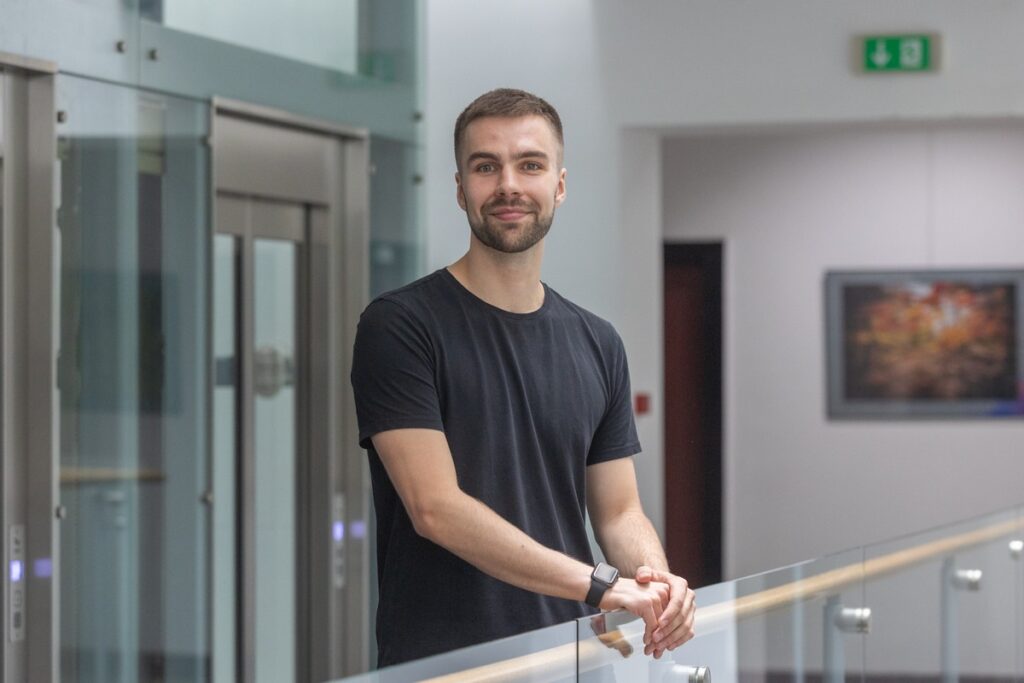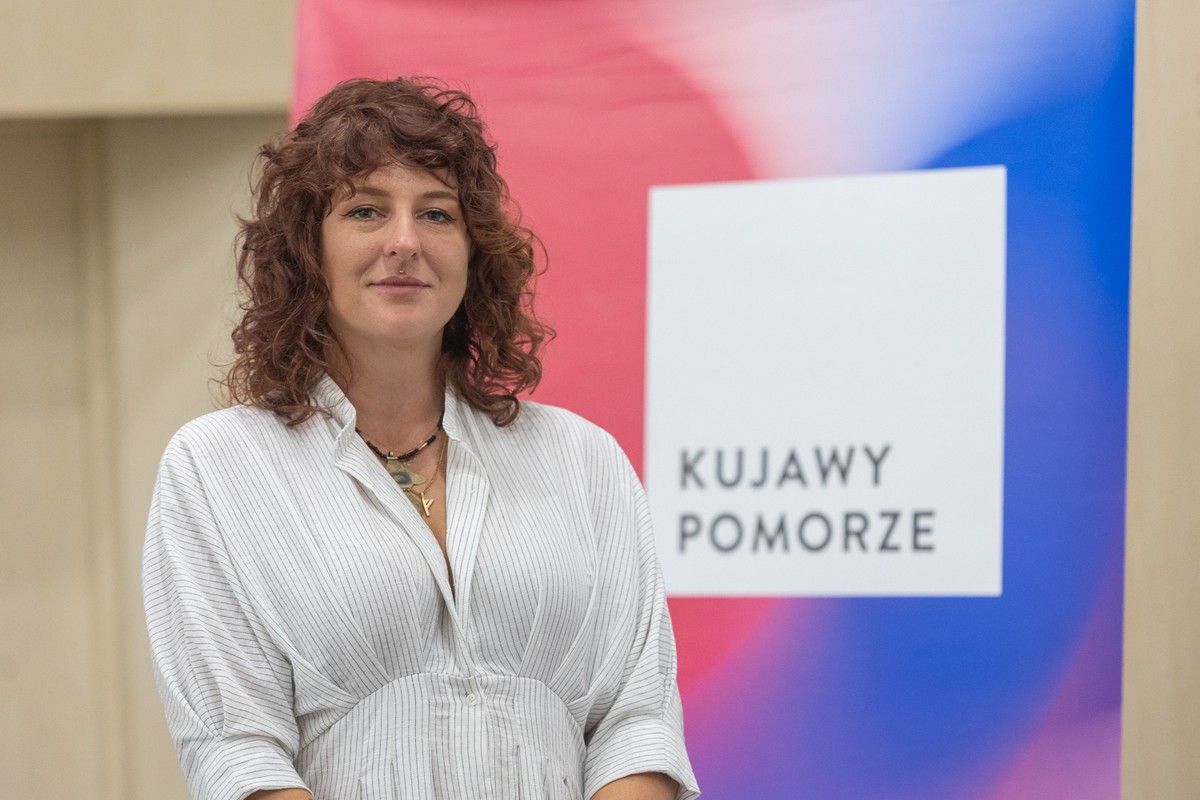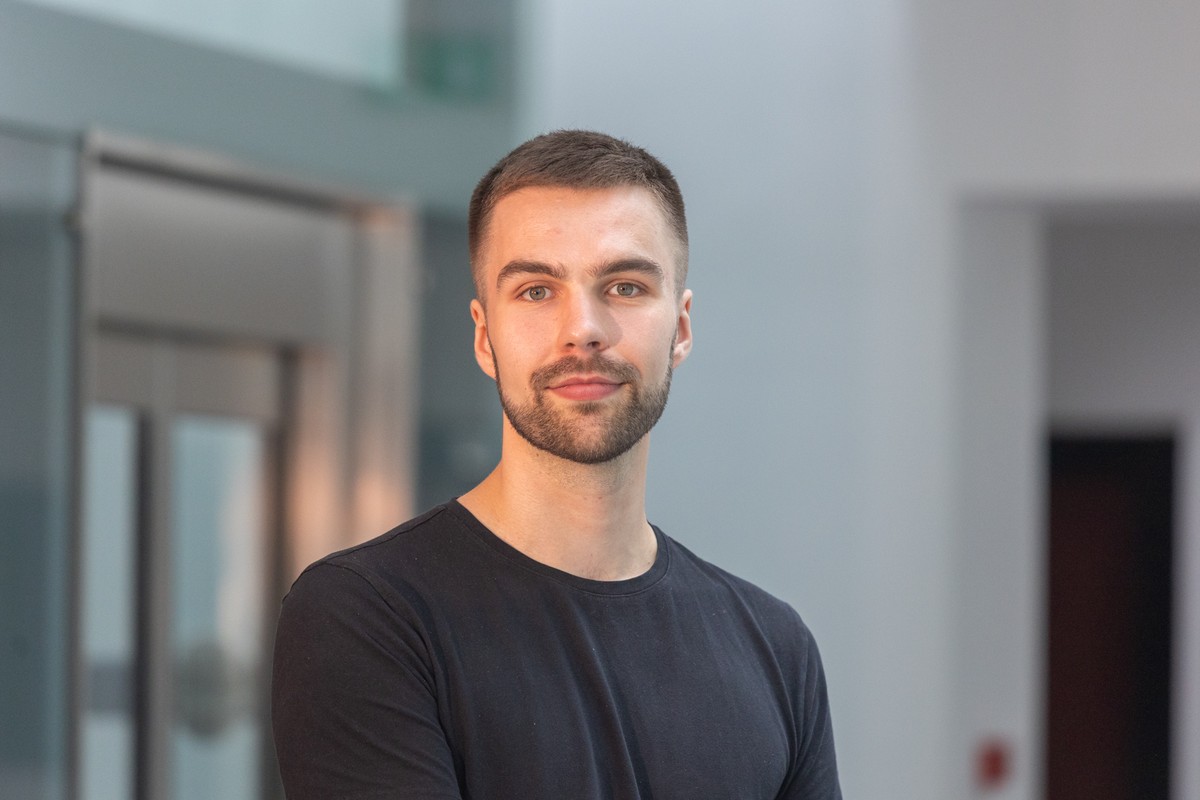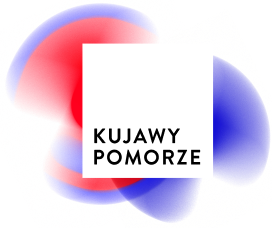
To discover the past, to listen to the present
A conversation with musician Antoni Majewski and culture researcher Natalia Zacharek, who this year received arts scholarships awarded by Marshal Piotr Całbecki.
Natalia Zacharek*
Which of Poland’s folk costumes do you like the most?
Each costume has qualities that make it unique. All of them have also undergone smaller or greater transformations. Although I don’t have a favourite folk costume, I am particularly fond of the intriguing nature of the Kashubian costume, where identity was built upon a folk outfit that differs significantly from the original. The colourful embroidery on the shirt sleeves and the skirts’ stripes in strictly defined colours are undoubtedly a beautiful interpretation of what was once a much simpler attire. If you asked a Kashubian today about the traditional Kashubian costume, they would undoubtedly describe a version that has already been heavily transformed — yet remains an important element of their local patriotism.

Natalia Zacharek, fot. Mikołaj Kuras dla UMWKP
Which place does the Chełmno costume hold in this subjective ranking?
I live in Chełmno and reconstruct selected elements of ethnography. I am also a regionalist, deeply connected to the Chełmno land. Perhaps that’s why telling the story of this costume — its potential mediations and proposals for presentation — is so important to me. The people of Chełmno want to have their own costume! According to researchers, it resembled the Kujawskie region costume and combined many shades of blue and red. Because the Chełmno folk costume disappeared relatively early, it will be difficult to fully reconstruct its original appearance. I have a lot of work ahead!
Will the results of this work appear in the book “The Chełmno Costume – Identity and Tradition”?
Yes. My aim is to prepare an illustrated popular-science publication devoted to the traditional folk costume of the Chełmno region — an element of the cultural heritage of the Kujawsko-Pomorskie Voivodeship that is gradually fading from collective memory. It has already vanished from the region’s socio-cultural practice. The project will include analysis of ethnographic, museum and archival sources, field research and photographic documentation of contemporary reconstruction efforts, consultations with experts and creative communities, and the preparation of a synthetic, accessible narrative that blends scholarly and popular elements.
Antoni Majewski**
Why the cello? Was it the only instrument on which you wanted to build your musical career?
When I began music school, I had no specific idea which instrument I wanted to play. The examination committee assigned me the cello — probably for purely practical reasons: I had a good ear and large hands. Later, I considered switching instruments, following the trend among my friends who chose guitar or percussion, but ultimately I never made the change. Looking back, I’m very glad I didn’t.
In which repertoire do you feel most at home?
I feel comfortable in a wide range of repertoire, but in recent months I have become particularly drawn to new music, which fascinates me with its contemporaneity and richness of expressive possibilities. I most often reach for solo cello pieces by Helmut Lachenmann, Krzysztof Penderecki and György Kurtág. These works give me the greatest satisfaction as a performer. I also greatly enjoy working on new compositions and collaborating directly with composers.

Antoni Majewski, fot. Mikołaj Kuras dla UMWKP
You received the Marshal’s scholarship to organise cello recitals. Please tell us about this project.
It includes three events, each consisting of a lecture, a solo cello recital and a discussion with the audience. In this way, I want to bring contemporary music closer to listeners, as it is often perceived as difficult. That’s why I introduce a verbal component — I talk about the pieces, techniques, inspirations and contexts — to make it easier for the audience to enter this world and engage more actively.
I feel that traditional forms of presenting classical music are becoming somewhat anachronistic. While they still have their place in philharmonic halls, I am interested in music free from conventions and embellishments — based on closeness to the audience and direct exchange of energy.
The concerts are free and take place not only in large cities but also in smaller towns, where access to culture is limited. I want to build dialogue between creators and audiences and create a space open to people of all ages and backgrounds. In this way, the project serves both artistic and educational purposes, popularising contemporary music in the Kujawsko-Pomorskie region.
It is also important that contemporary music is the voice of our times. Contemporary composers, as in the past, respond to events and social and cultural changes, translating them into the language of sound. That’s why I believe that promoting and supporting artists working with new music is so vital — it is precisely this music that allows us to listen to the present most fully.
* Natalia Zacharek is the author of books including “Demons of the Chełmno Land. Tales from Kujawsko-Pomorskie,” “Folk Demons of Kociewie,” and “Szaszor. The Language of Animals.” A PhD candidate in Cultural Studies at the University of Wrocław. She is interested in the spiritual culture of the early Slavs, the presence of animals in traditional cultures, and the study of psychoactive plants in traditional cultures and Western society.
** Antoni Majewski is a cellist, chamber musician and event curator. He studied in Warsaw, Dresden and Budapest. He is currently a doctoral candidate at the Academy of Art in Szczecin and a participant in the Hashtag PRO programme. A laureate of music competitions and artistic scholarships, he has performed in concert halls in Poland and abroad. Member of the W788 Foundation and the Koherencje collective.
November 2025


